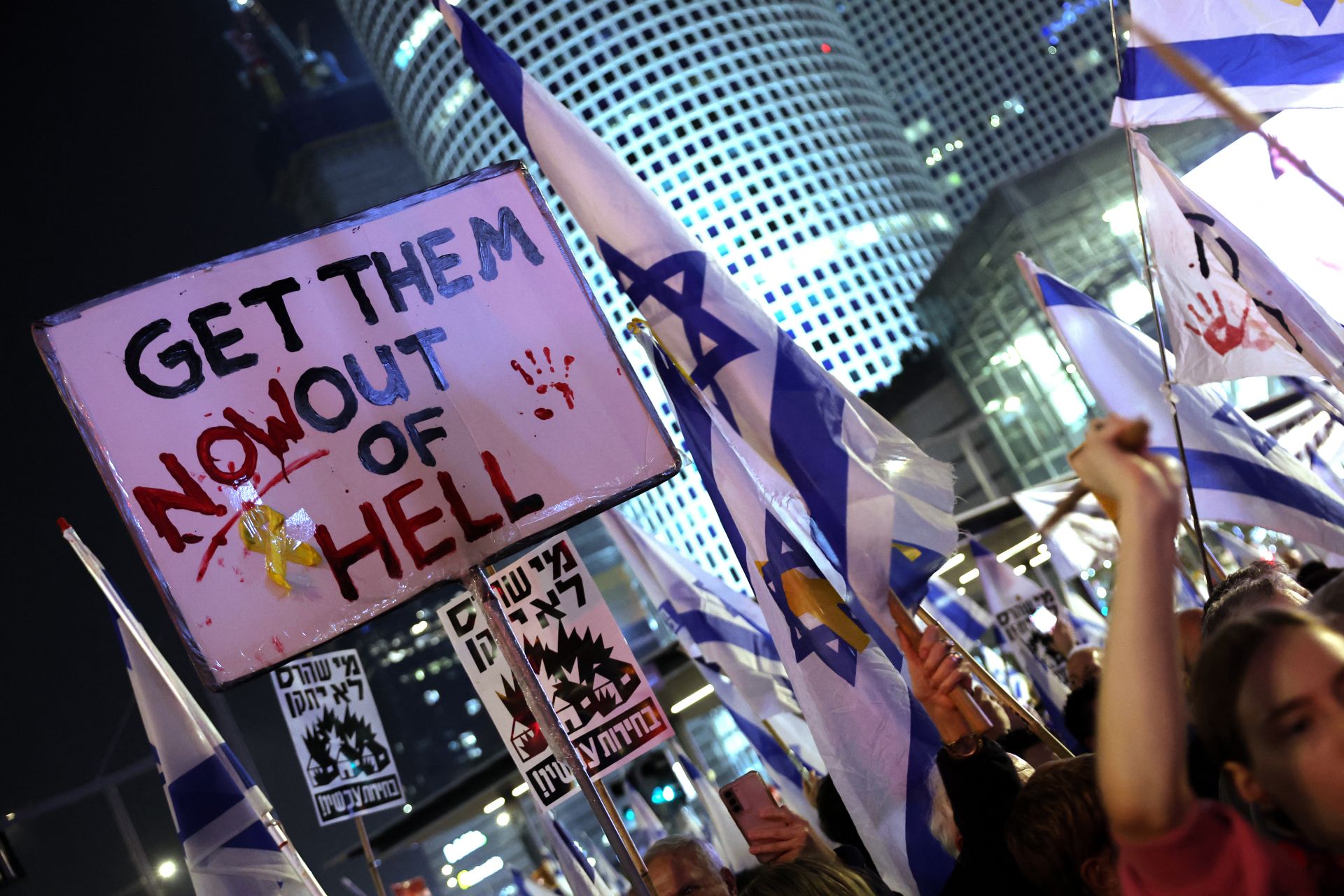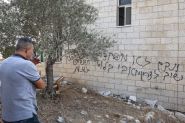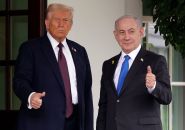- Home
- Middle East
- Israel Demands Hostage release for Gaza Ceasefire

Protest of hostage families in Israel ©Jack GUEZ / AFP
Hamas said Monday that Israel has offered a 45-day ceasefire if it releases half of the remaining hostages held in Gaza, which the United Nations said is now in the grip of its worst humanitarian crisis since the start of the war.
A Hamas official told AFP that Israel had also demanded that the Palestinian militants disarm to secure an end to the Gaza war but that this crossed a "red line".
Egyptian mediators passed on an Israeli proposal that "includes the release of half the hostages in the first week of the agreement, an extension of the truce for at least 45 days, and the entry of aid," the official said.
Militants took 251 hostages during the October 7, 2023 attacks that set off the war. Some 58 are still held in Gaza, including 34 the Israeli military says are dead.
"The proposal includes the disarmament of Hamas and all Palestinian armed factions in the Gaza Strip as a condition for a permanent end to the war," the official added.
Hamas leaders were reviewing the ceasefire proposal but the official said: "Hamas and the resistance factions' position is that the resistance's weapons are a red line and non-negotiable," the official said.
The official said Hamas negotiators were going to Qatar, where the group has an office and the main mediation talks with Israel have been held. Israel did not immediately comment on the Hamas statement.
"Hamas informed the mediators that it is willing to agree to any proposal that includes a permanent ceasefire, a full Israeli withdrawal from the Gaza Strip, and the entry of aid," the official said.
Earlier, the United Nation warned that Gaza's humanitarian crisis was spiralling out of control with no aid entering the territory for weeks and conditions rapidly deteriorating.
Israel, fighting in Gaza since the October 7, 2023 Hamas attacks, resumed operations in the Palestinian territory in March after the collapse of a two-month-old ceasefire amid differences over the next phase.
Hundreds of thousands of people have been displaced, with Israel blocking humanitarian aid since March 2, before the truce disintegrated.
Medical supplies, fuel, water and other essentials are in short supply, the UN says.
"The humanitarian situation is now likely the worst it has been in the 18 months since the outbreak of hostilities," said the UN Office for the Coordination of Humanitarian Affairs (OCHA).
Aid workers had been forced "to ration and reduce deliveries to make the most of the remaining stocks," OCHA said.
At Nasser Hospital in the southern city of Khan Yunis, a doctor, Ahmed al-Farah said the medical team was working non-stop despite "a shortage in everything".
'Urgent need'
Palestinian president Mahmud Abbas and French President Emmanuel Macron called for an "urgent" ceasefire in Gaza.
In a phone call, Macron and Abbas "emphasised the urgent need for a ceasefire, the acceleration of humanitarian aid delivery (and) the rejection of the displacement of the Palestinian people from their land", the official Palestinian news agency Wafa reported.
Macron said on X that "France is fully mobilised" to free hostages and halt the fighting. He also advocated "reform" of the Palestinian Authority as part of moves to let the body govern a post-war Gaza without Hamas.
Senior Hamas official Taher al-Nunu indicated that the group was willing to release all hostages in exchange for a "serious prisoner swap" and guarantees that Israel would end the war.
"The issue is not the number of captives," Nunu said, "but rather that the occupation is reneging on its commitments, blocking the implementation of the ceasefire agreement and continuing the war".
Speaking after talks with Egyptian and Qatari mediators, he insisted Hamas would not relinquish its arms.
Israeli news website Ynet reported that under a new ceasefire proposal, Hamas would release 10 living hostages in exchange for US guarantees that Israel would enter negotiations for a second phase of the ceasefire.
France hopes others follow
The first ceasefire, which began on January 19, included multiple hostage-prisoner exchanges before it unravelled.
Israel had sought to extend the first phase, while Hamas insisted that negotiations be held for the second phase under the deal, as outlined by former US president Joe Biden.
Macron has announced that France could recognise a Palestinian state within months, leading to sharp criticism in Israel.
On Monday he said he hoped French recognition would "trigger" other countries to follow suit, and that countries which do not recognise Israel should do so.
Israel insists recognition moves are premature.
"President Macron is gravely mistaken in continuing to promote the idea of a Palestinian state in the heart of our land -- a state whose sole aspiration is the destruction of Israel," Netanyahu said in a statement.
By AFP Team in Gaza City with Louis Baudoin-Laarman
Read more



Comments